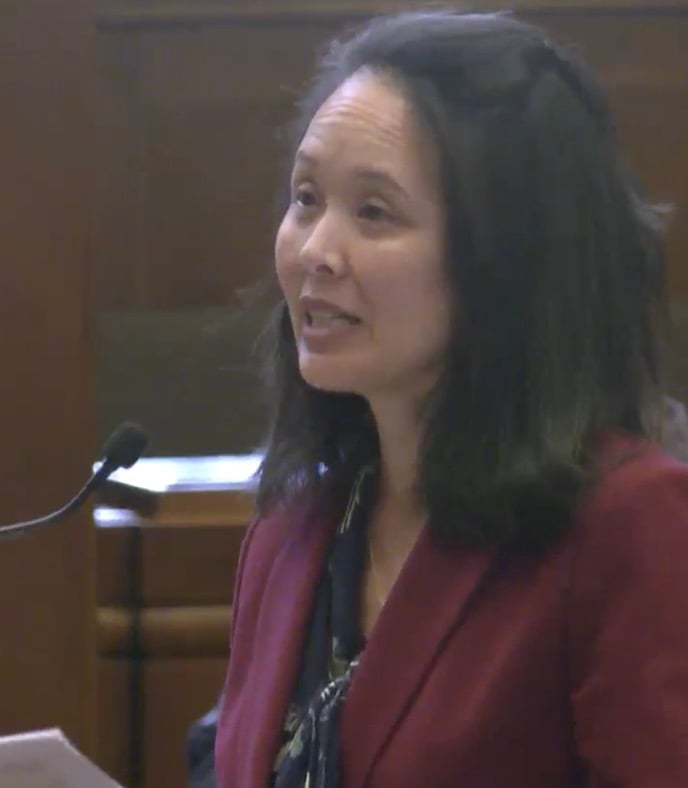Oregon Senator Khanh Pham has planted a flag this legislative session on the idea that repairing and maintaining existing highways is more important than expanding them or building new ones.
On Monday, Senator Pham, a Democrat who represents outer southeast and northeast Portland, was the sole “no” vote on a bill that originally sought to give the Oregon Department of Transportation a blank check to widen a highway. And earlier that morning Pham gave a speech on the Senate floor about the need for more street safety funding.
Senate Bill 564 was proposed by Senator Dick Anderson, a Republican who represents a coastal district between Salem and Eugene. The bill called on ODOT to, “widen and increase the capacity of motor vehicle travel” on a three mile stretch of Highway 20 between Corvallis and Philomath. The bill called for funding through the General Fund, but left the specific amount blank.
In a public hearing for the bill on February 11th, Sen. Anderson, the Mayor of Philomath, and a local county commissioner, all spoke in support. They said folks who live in Philomath have complained to them about bumper-to-bumper traffic when they try to drive to jobs and events in Corvallis (home to Oregon State University). They talked about how “easing congestion” would improve safety and allow more growth and economic development.
Philomath Mayor Christopher McMorran said, “We are not trying to cause any environmental damage. We are trying to find all solutions we can to get folks to work, to get folks to school, to make sure that highway is working for residents.”
The bill was ultimately amended to remove the project appropriation and make it just a “study bill.” Legislative staff estimates the study, which would give lawmakers, “recommendations for increasing the capacity of motor vehicle travel,” would cost about $300,000.
The Joint Committee on Transportation voted on the bill Monday evening. It passed 10-1, with Sen. Pham the only person voting against it.

“I am worried about advancing legislation that’s calling out specific highway widening projects for study,” Pham said in comments before casting her vote, “As opposed to taking a total systems approach looking at our entire transportation system… I just worry about the precedent it sets as we’re gearing up for the 2025 package, especially with so many of the projects with cost overruns that we’re navigating, I think we really need to be focusing on maintaining our existing system.”
Those comments lined up with a speech Pham gave on the Senate Floor that same morning. “Community members are angry, and they have a right to be. This was preventable,” Pham shared as she recounted the death of Roger Lee, who was killed by a driver as he walked across SE Powell Blvd on March 9th. “Many legacy highways currently owned by the Oregon Department of Transportation were designed for cars, but are, of course, used by all modes and are more deadly for all road users, particularly people walking and biking.” “Our state highways are old and outdated and unsafe and suffering from disinvestment,” she continued. “As we discuss how best to use our limited state transportation funds, we need to prioritize investments that make our current system safer, like fully funding our great speeds program, Safe Routes to School and supporting jurisdictional transfer of some of these roads — whether it’s a logging truck on Highway 30 near Clatskanie, or middle-schooler trying to bike to school across SE Powell Blvd, we must make Oregon streets safer for everyone.”
Pham is also gaining support from across the aisle. Senator Suzanne Weber, a Republican who represents coastal Tillamook County, also spoke on the Senate Floor Monday about the need to, “Address the dire safety situation facing our transportation infrastructure.”


















